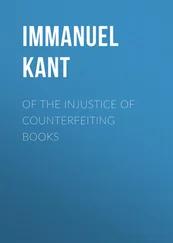§§ 10 Conclusion of the Transcendental Aesthetic.
We have now completely before us one part of the solution of the grand general problem of transcendental philosophy, namely, the question: “How are synthetical propositions a priori possible?” That is to say, we have shown that we are in possession of pure a priori intuitions, namely, space and time, in which we find, when in a judgement a priori we pass out beyond the given conception, something which is not discoverable in that conception, but is certainly found a priori in the intuition which corresponds to the conception, and can be united synthetically with it. But the judgements which these pure intuitions enable us to make, never reach farther than to objects of the senses, and are valid only for objects of possible experience.
13 I can indeed say “my representations follow one another, or are successive”; but this means only that we are conscious of them as in a succession, that is, according to the form of the internal sense. Time, therefore, is not a thing in itself, nor is it any objective determination pertaining to, or inherent in things.
14 The predicates of the phenomenon can be affixed to the object itself in relation to our sensuous faculty; for example, the red colour or the perfume to the rose. But (illusory) appearance never can be attributed as a predicate to an object, for this very reason, that it attributes to this object in itself that which belongs to it only in relation to our sensuous faculty, or to the subject in general, e.g., the two handles which were formerly ascribed to Saturn. That which is never to be found in the object itself, but always in the relation of the object to the subject, and which moreover is inseparable from our representation of the object, we denominate phenomenon. Thus the predicates of space and time are rightly attributed to objects of the senses as such, and in this there is no illusion. On the contrary, if I ascribe redness of the rose as a thing in itself, or to Saturn his handles, or extension to all external objects, considered as things in themselves, without regarding the determinate relation of these objects to the subject, and without limiting my judgement to that relation — then, and then only, arises illusion.
Second Part. Transcendental Logic.
Introduction. Idea of a Transcendental Logic.
I. Of Logic in General.
Table of Contents
Our knowledge springs from two main sources in the mind, first of which is the faculty or power of receiving representations (receptivity for impressions); the second is the power of cognizing by means of these representations (spontaneity in the production of conceptions). Through the first an object is given to us; through the second, it is, in relation to the representation (which is a mere determination of the mind), thought. Intuition and conceptions constitute, therefore, the elements of all our knowledge, so that neither conceptions without an intuition in some way corresponding to them, nor intuition without conceptions, can afford us a cognition. Both are either pure or empirical. They are empirical, when sensation (which presupposes the actual presence of the object) is contained in them; and pure, when no sensation is mixed with the representation. Sensations we may call the matter of sensuous cognition. Pure intuition consequently contains merely the form under which something is intuited, and pure conception only the form of the thought of an object. Only pure intuitions and pure conceptions are possible a priori ; the empirical only a posteriori.
We apply the term sensibility to the receptivity of the mind for impressions, in so far as it is in some way affected; and, on the other hand, we call the faculty of spontaneously producing representations, or the spontaneity of cognition, understanding. Our nature is so constituted that intuition with us never can be other than sensuous, that is, it contains only the mode in which we are affected by objects. On the other hand, the faculty of thinking the object of sensuous intuition is the understanding. Neither of these faculties has a preference over the other. Without the sensuous faculty no object would be given to us, and without the understanding no object would be thought. Thoughts without content are void; intuitions without conceptions, blind. Hence it is as necessary for the mind to make its conceptions sensuous (that is, to join to them the object in intuition), as to make its intuitions intelligible (that is, to bring them under conceptions). Neither of these faculties can exchange its proper function. Understanding cannot intuite, and the sensuous faculty cannot think. In no other way than from the united operation of both, can knowledge arise. But no one ought, on this account, to overlook the difference of the elements contributed by each; we have rather great reason carefully to separate and distinguish them. We therefore distinguish the science of the laws of sensibility, that is, aesthetic, from the science of the laws of the understanding, that is, logic.
Now, logic in its turn may be considered as twofold — namely, as logic of the general, or of the particular use of the understanding. The first contains the absolutely necessary laws of thought, without which no use whatsoever of the understanding is possible, and gives laws therefore to the understanding, without regard to the difference of objects on which it may be employed. The logic of the particular use of the understanding contains the laws of correct thinking upon a particular class of objects. The former may be called elemental logic — the latter, the organon of this or that particular science. The latter is for the most part employed in the schools, as a propaedeutic to the sciences, although, indeed, according to the course of human reason, it is the last thing we arrive at, when the science has been already matured, and needs only the finishing touches towards its correction and completion; for our knowledge of the objects of our attempted science must be tolerably extensive and complete before we can indicate the laws by which a science of these objects can be established.
General logic is again either pure or applied. In the former, we abstract all the empirical conditions under which the understanding is exercised; for example, the influence of the senses, the play of the fantasy or imagination, the laws of the memory, the force of habit, of inclination, etc., consequently also, the sources of prejudice — in a word, we abstract all causes from which particular cognitions arise, because these causes regard the understanding under certain circumstances of its application, and, to the knowledge of them experience is required. Pure general logic has to do, therefore, merely with pure a priori principles, and is a canon of understanding and reason, but only in respect of the formal part of their use, be the content what it may, empirical or transcendental. General logic is called applied, when it is directed to the laws of the use of the understanding, under the subjective empirical conditions which psychology teaches us. It has therefore empirical principles, although, at the same time, it is in so far general, that it applies to the exercise of the understanding, without regard to the difference of objects. On this account, moreover, it is neither a canon of the understanding in general, nor an organon of a particular science, but merely a cathartic of the human understanding.
In general logic, therefore, that part which constitutes pure logic must be carefully distinguished from that which constitutes applied (though still general) logic. The former alone is properly science, although short and dry, as the methodical exposition of an elemental doctrine of the understanding ought to be. In this, therefore, logicians must always bear in mind two rules:
Читать дальше












